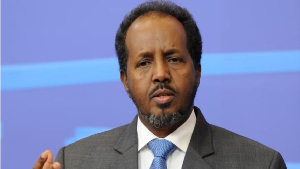The issue of corruption is a serious concern in many countries, including Ghana.
When corruption practices involve government officials, it can have a detrimental impact on society, particularly on the youth who are the future of the nation. Here are some key points to consider regarding the impact of corruption on the youth in Ghana:
Lack of trust and confidence: Corruption erodes public trust in government institutions and officials. When the youth witness or experience corruption, it can lead to a loss of confidence in the government and its ability to act in the best interests of the citizenry. This can undermine their faith in the democratic process and hinder their engagement in civic activities.
Limited opportunities:Corruption can contribute to a lack of opportunities for the youth, especially in areas such as education, employment, and entrepreneurship. When resources and opportunities are diverted through corrupt practices, it creates an uneven playing field and restricts equal access to these opportunities. This can perpetuate a cycle of poverty and inequality, impacting the youth's prospects for a better future.
Moral and ethical impact: Witnessing corruption among government officials can lead to a moral and ethical dilemma for the youth. It raises questions about integrity, fairness, and the values that underpin society. Exposure to corruption without effective accountability mechanisms can result in a normalization of unethical behavior, making it difficult for the youth to distinguish right from wrong.
Impaired development and service delivery: Corruption diverts resources that are meant for public services, such as education, healthcare, and infrastructure development. As a result, the youth may experience reduced access to quality education, healthcare facilities, and basic amenities. This can hinder their overall development and well-being, limiting their potential and hindering the progress of the nation as a whole.
Negative role models: When government officials engage in corrupt practices, they become negative role models for the youth. This can undermine the values of honesty, integrity, and accountability that are essential for sustainable development. It is crucial to provide positive role models and emphasize the importance of ethical behavior and good governance to counteract the negative influence of corruption.
Addressing corruption requires comprehensive efforts, including:
Strengthening anti-corruption measures: Implementing robust anti-corruption laws, institutions, and mechanisms to investigate and prosecute corrupt officials. This strengthens accountability and acts as a deterrent to corrupt practices.
Promoting transparency and accountability:
Education and awareness: Promoting awareness programs and education campaigns to inform the youth about the detrimental effects of corruption and the importance of ethical behavior. This can foster a sense of civic responsibility and empower the youth to actively participate in the fight against corruption.
Enhancing youth participation: Engaging the youth in decision-making processes, governance initiatives, and anti-corruption efforts. Their active involvement can bring fresh perspectives, innovative ideas, and a renewed commitment to creating a corruption-free society.
Strengthening institutions: Building strong institutions with the capacity to investigate and prosecute corruption cases impartially. This involves promoting professionalism, ethics, and integrity within the public service.
The government, civil society, and citizens to come together to address corruption effectively. By combating corruption, Ghana can create a more inclusive and equitable society that provides opportunities for the youth to thrive and contribute positively to the nation's development.
Ghana’s leading digital news platform, GhanaWeb, in conjunction with the Korle-Bu Teaching Hospital, is embarking on an aggressive campaign which is geared towards ensuring that parliament passes comprehensive legislation to guide organ harvesting, organ donation, and organ transplantation in the country.
Click here to start the nomination process for the 2023 GhanaWeb Excellence Awards
Opinions of Thursday, 7 September 2023
Columnist: Benjamin Edward Abaidoo















